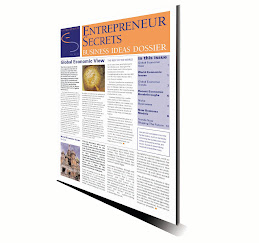Americans accept and respect entrepreneurs: some business failures are expected and they are considered a normal part of the process. It is especially striking that US women much better versed in how to make money, and are very active in entrepreneurship, being responsible for more than a third of all start-up efforts.
In the past apprenticeship has been predominantly a male programme and the participation of women has been traditionally very low. However, companies who have employed women apprentices have praised their attitude, commitment and performance.
Not only is there today greater awareness of the need to promote more job opportunities for women but, more importantly, there is increasing realisation that efforts should be directed at breaking down patterns of occupational segregation by encouraging increased levels of participation by women in sectors of the labour market traditionally dominated by men.
In Ireland, for example, FÁS’ (Ireland’s training authority) Action Programme for Women – Women in Focus –provides opportunities for women to broaden their career options into new and non-traditional areas of work. To promote the entry of women into apprenticeships FÁS provides Preparatory Training Courses which help prepare women to train and work in a traditionally male environment. To employers, FÁS offers a bursary to encourage an increased level of recruitment by employers of women apprentices.
The bursary is a grant to private sector employers. The aim of the bursary is to provide an incentive to employers to train and employ women apprentices. It provides a total grant of £2,400 (inclusive of £300 tool kit allowance) to each employer who recruits a woman apprentice. The grant is a contribution towards wage costs of £75 per week over the first 28 weeks of on-the-job phases of the apprenticeship.
Women were well represented on FÁS Programmes and over 50,000 women complete either a FÁS Training or Employment Programme annually. These figures clearly demonstrate that there continues to be a gradual and significant growth in the proportion of women to men participating in FÁS Programmes overall.
By taking on board the principles behind this Irish initiative, and by also focusing on the success of the American economy in fostering such a substantial amount of female entrepreneurs, we would be in a better position to utilise a huge resource which has yet to be tapped into fully. By forming training packages specifically geared towards the female population, we may gradually see a much needed erosion of the status quo where females occupy positions subordinate to those occupied by men.
Recognising and calling for the formation of policies to combat this long-standing imbalance in employment should be a task worthy of attention. It would not only broaden the individual’s horizons, but would also provide businesses with a potentially larger, well-trained workforce, and the UK with a bigger army of entrepreneurs.
Subscribe to:
Post Comments (Atom)

No comments:
Post a Comment